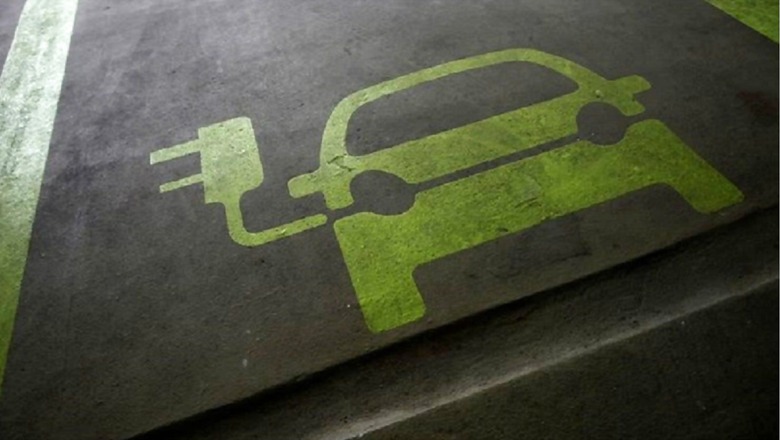
views
India is framing policies to promote the use of clean fuels, including electric vehicles (EVs), and tightening emission norms to meet its carbon reduction targets, transport minister Nitin Gadkari told the Reuters Impact conference on Monday. India is the third-largest user of transport automobiles in the world but 70% of its transport energy need is fulfilled by importing fossil fuels.
“The aim is to gradually shift to fuels, which are import substitutes, cost effective, indigenous and pollution free," Gadkari said, adding that this includes biofuels, ethanol blends as well as hybrid EVs and hydrogen fuel cells.
The government will also stick firmly to its 2022 deadline for implementing tighter fuel efficiency norms also known as Corporate Average Fuel Efficiency (CAFE), Gadkari said, which could push automakers to adopt cleaner fuels to meet the new target.
“The government is firm on adhering to the CAFE regulation, where automakers are required to keep average CO2 emission less than 130 grams per kilometre till 2022 and below 120 grams per kilometer thereafter," he said.
Many Indian automakers including India’s largest carmaker Maruti Suzuki have sought delays for implementation of stricter emission rules.
India is targeting reducing carbon emissions by 33%-35% by 2030 as part of its commitment under the Paris Climate Agreement, Gadkari said, and it is looking at sustainable mobility and clean energy to achieve its goal.
Gadkari’s comments come ahead of UN Climate Change Conference (COP26) in November seen as a crucial chance to wring out ambitious enough commitments from governments to address global warming.
However, he said India expects new incentives towards climate funds for developing economies from rich nations, echoing similar comments by India’s chief economic adviser last week.
Also Watch:
Wealthy nations are under ever-greater pressure to deliver on an unmet pledge, made in 2009, to send $100 billion a year to help finance an adequate response by developing countries to rising global temperatures as the world prepares for COP26.
The South Asian nation intends electric cars to make up 30% of total private car sales by 2030 and for electric motorcycles and scooters to make up 40% of total sales, Gadkari said.
The government will also soon make it mandatory for gasoline cars to have flexible fuel engines so they can also run on ethanol blends, Gadkari said, adding that India aims to achieve 20% ethanol-blending with gasoline by 2025 – five years ahead of its previous target. Flexible fuel vehicles (FFVs) can run on any blend of gasoline or ethanol.
Read all the Latest News , Breaking News and IPL 2022 Live Updates here.




















Comments
0 comment